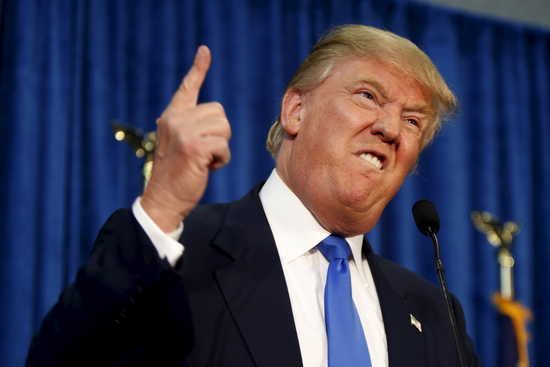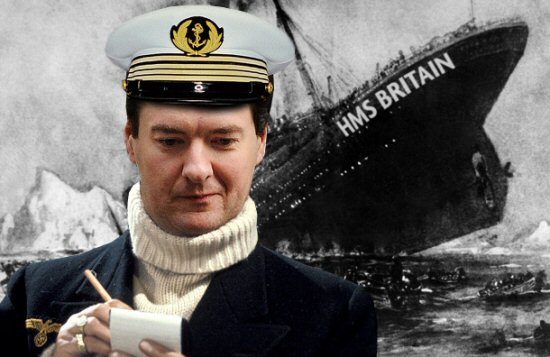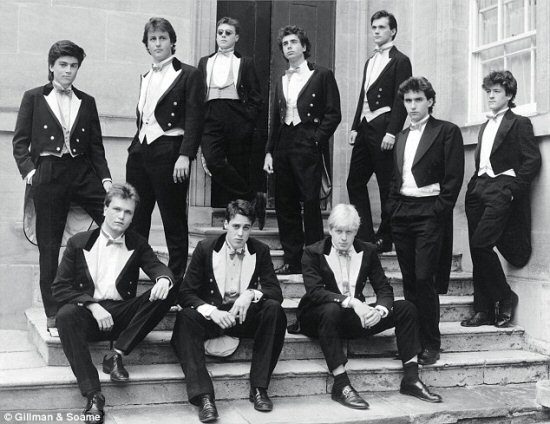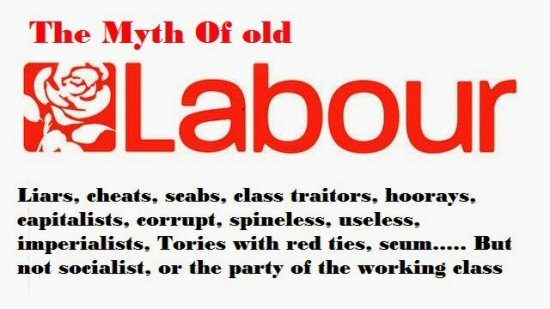Warning: political post. (But not party political, so its ok!).
I am, as someone very interested in politics (mostly because I’m the designer of Democracy 3) Increasingly distressed by the phenomena that I notice both in the UK, and the US, of what I’m going to call the infantilization of politics. What I mean by this, is the way in which political argument and debate on issues is reduced to a level where critical thinking and analysis is non existent, and becomes based entirely around personalities, appearances, memes and humour. The phenomena has got worse in recent years with the spread of twitter and facebook and reddit, and similar sites to the extent that most political discourse now seems to be reduced to short form (in twitter, alarmingly so) one-liner jabs and jokes, rather than actual analysis of any topic.
Why actually bother explaining why you disagree with the tax policies of Donald Trump when you can just post this:

Why bother dissecting the economic policy of George Osborne when you can just paste this:

This is how children behave, but increasingly its also how adults who think they are making political arguments behave. Why?
As I see it, there are three forces at play. One is the development of the professional politician. The second is the shortening of political argument required by social media, and the third is the reinforcement of social bubbles allowed by selective ‘blocking’ and ‘friends-lists’ that is a feature of social media.
The Pro Politician.
There was a time when politics was not a career that people embarked upon from the very start, but something they swapped to late in their career. US president Jimmy Carter served in the Navy, then ran a farm before entering politics. Ronald Reagan was 56 when he became governor of California. UK politicians like Alan Johnson and John Prescott had careers before parliament, and this was not considered unusual, but recently, especially in the UK, politicians have come from an extremely narrow social group. That group in the UK is so narrow that you can describe it not only as a single pair of universities, but also a specific course (PPE, or politics, philosophy and economics) and in some cases, membership of a specific university drinking club.

In short, the pool from which politicians are being chosen seems to be shrinking. The US is no different, we get a Bush, then son of Bush, a Clinton then Wife of Clinton, and need we even mention the Kennedy clan? A vast country with hundreds of millions of citizens, but the voting options are often the wife/son/relative of the last leader.
This seems to be a problem because these people do not understand a life outside politics. That sense of total detachment from the ordinary voter is leading voters to feel that all politicians, be they left or right or anywhere in-between, are from a ‘political class’ that neither relates to the, or understands them. As a result, politicians are despised, hated and treated as the enemy. because of this, there is no need to ‘engage’ with politics on an intellectual level. The average voter now thinks its fine to mock, ridicule and treat politicians like idiots, and its actually considered weird to take any other view towards them. When respect for politicians nosedives, we all get dragged down into the gutter.
The Short Argument
Would you like to hear my views on the top rate of tax? I could tell you, but I need more than 128 characters to do it in. In fact I probably need several pages, but of course, you wouldn’t read that because frankly, who does in 2016? There is a reason so many people add ‘TL;DR’ to articles (too long, didn’t read). Political points of view are often nuanced, complex, and in need of expansion and clarification, but sadly our attention-deficit society cannot cope with this any more. We killed of true journalism by refusing to pay for it, so what we get now is clickbait. The pound/dollar drops a bit? THE SKY IS FALLING! it reverses slightly? ECONOMY SOARS! Nothing less will get any clicks.

Most arguments are nuanced. There is a reasonable argument to retain nuclear weapons, and a reasonable argument to disarm unilaterally. Perfectly rational and sensible countries have taken each route. The trouble is, try explaining either argument in 128 characters and you basically get “I love nuclear war” up against “I love peace and flowers”. It’s not that simple, and it never was. Soundbites were bad, but twitter makes them even worse.
Added to this, people are not simple stereotypes. I know some people online think I’m an Ayn-Rand reading free-market loving libertarian fruitcake. Some others think I’m a tree-hugging communist. I’m neither. I’m probably 75% capitalist, 25% socialist, 90% environmentalist, 50% libertarian, 60% liberal and 100% atheist. That isn’t a viewpoint you can condense to a single article, let alone a page, and don’t even consider making it a tweet. Even my views on Nuclear power (I’m against mostly in practice, but not in theory, and mostly relating to time v climate change, cost & waste, and also depending on liability, proliferation concerns and security provision) don’t fit easily into a tweet. The chances of really learning what an individual feels about political issues unless you are a close friend who regularly discusses such topics with them are close to zero, but we have forgotten all that. We simply put people into ‘us’ and ‘them’ and make no attempt to reach out and change minds. Politics should be about nuanced views, but people treat it like football teams. And if you dare move a few centimetres away from your team, its amazing how rabidly the team turns on you.

The Social Bubble.
And that leads us to the third depressing factor in all this: The social bubble. Reddit is a perfect example. The consensus amongst certain subreddits is that Jeremy Corbyn is going to lead the UK Labour Party to victory. He will not (the polls make that clear), but if all your friends think he will, you will tend to start believing it, and its never been easier to screen out the views of dissent. People live in geographic bubbles as it is, but combine that with a facebook friends list and a twitter-follow list of only people who think like you and your ability to listen to opposing views will diminish to the point of extinction. Lets also not forget the whole ‘no-platform’ movements, deliberately opposed to letting other views be heard. When it become so ‘dangerous’ to let opinions be heard?

I think we all need to be on guard against a new type of cognitive bias. Not just a confirmation-bias as we have understood in the past, but a turbo-charged confirmation bias where we are not only actively seeking out confirmation of our views, but have set up filters so we do not even know a contrary view exists. Walking out of a bar because some people in it have opposing views is bad enough. Turning on a filter that renders those people invisible to you is way worse. This is dangerous. Not being open to hearing the views of people who disagree with you is a route towards loss of empathy, and not to get all yoda, but a loss of empathy leads to cruelty, indifference, and much worse. Dehumanizing people because they are not in ‘your tribe’ is a terrible way to behave, and only fear of the cliche of godwins law prevents me joining up the dots here.
Everyone should make it their mission to cultivate some friends who hold different views. I follow people on twitter who make my eyes roll every time I see their political tweets, but doing so is good for me. If you auto-block and unfriend people because their politics is different you are only hurting yourself. And if you outsource the blocking of people to online lists of ‘bad’ people, thats even worse.
Lets all try and actually listen to the other point of view for a change.